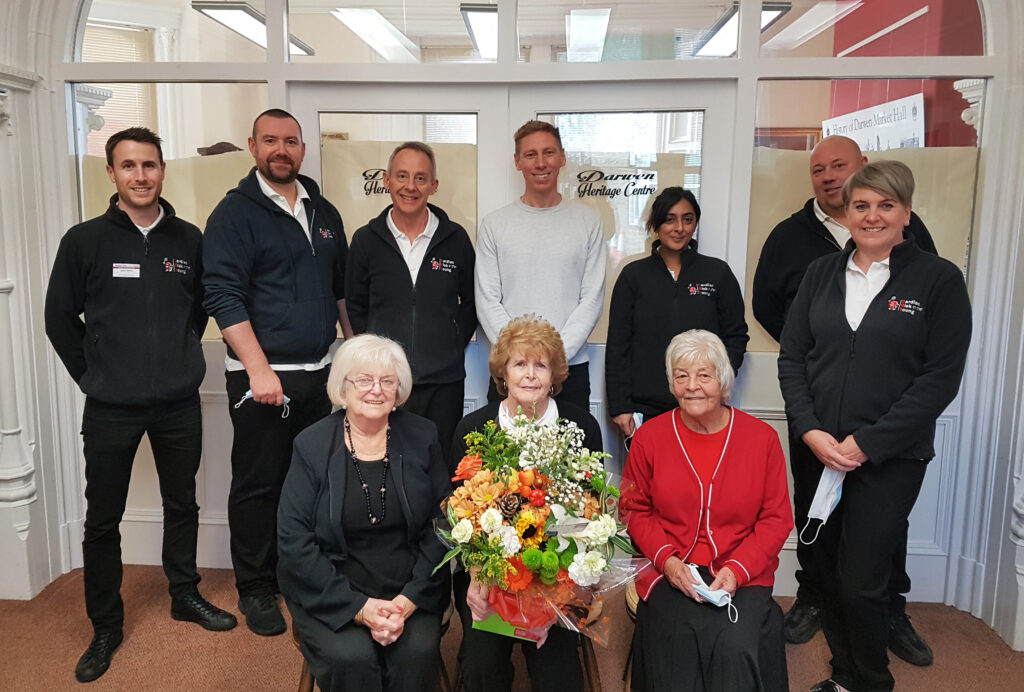A bereaved mum from Darwen is stepping back from years of incredible fundraising efforts on behalf of CRY, finishing off over two decades of dedicated support just as it started, with a final heart screening session for young people from the local area in memory of her son.
Neil Wickers was just 31 and working as a financial advisor when he died suddenly from a previously undiagnosed heart condition in 1996. He collapsed whilst at the Albion Mill Gym at Ewood, near Blackburn, having shown no previous signs or symptoms. Shortly after his tragic death, Neil’s parents joined forces with another local family who had also suffered the devastating grief caused by the death of their young son from a ‘hidden’ heart condition. David Staff from Hoddlesden was just 17 when he collapsed and died near the end of the 10k Darwen Dashers Road Race in December 1994.
Together, both families made a huge impact across the North West of England in terms of helping to raise awareness of CRY’s work and supporting its ongoing mission to prevent sudden cardiac deaths in young people by funding specialist screening sessions and purchasing vital medical equipment as part of CRY’s nationwide “testmyheart” programme.
Along with friends, families and members of the wider community, Irene and Bill Wickers’ enduring efforts contributed to a grand total of £125,000 being raised which, in addition to 15 days of screening, was used to buy an echocardiogram scanning machine for CRY’s mobile screening ‘fleet’ and an electrocardiogram (ECG) for Darwen Health Centre.

Including the final screening which recently took place at Darwen Heritage Centre, almost 1,800 young people have now had their hearts screened thanks to Irene, with many young people having been identified with a potential problem and referred for further investigation.
Irene says: “Together with my husband Bill, who was such a wonderful and encouraging support to me over the years, we devoted so much of our time and energies into raising funds and awareness for CRY. The charity has always been there for us when we needed them – and it was such a privilege to be able to do our bit to support them too. Sadly, Bill is no longer with us and I’ve decided to take a step back from hosting screenings in memory of our beloved son, Neil. But I’ll never stop supporting CRY and doing what I can to make sure young people in our community know all about the charity and the work it does to stop these tragic deaths.”
Every week, 12 apparently fit and healthy young (aged 35 and under) people in the UK die suddenly from an undiagnosed heart defect. In 80% of these cases, there will have been no signs or symptoms until it is too late, which is why CRY wants every young person to have the opportunity to have their heart tested. As such, CRY now tests around 32,000 young people each year, aged between 14 and 35 and well over 225,000 since the screening programme was launched in 1995.
Dr Steven Cox, CRY’s Chief Executive, adds: “Firstly, I want to extend my heartfelt and sincere thanks to Irene for her years of devoted and tireless fundraising on behalf of CRY. We simply wouldn’t be able to provide our vital services and pioneering screening programme without the support of people like Irene and Bill. Every family and individual who chooses to support CRY are truly wonderful but there is certainly something about Irene and Bill’s 25-year commitment to CRY that makes them very special! We will miss her being a part of our screening programme but we know she will always be supporting and championing CRY as well as inspiring other families – particularly across the North West – who are also doing amazing things as part of their awareness and fundraising efforts.
“Our screening programme has evolved immeasurably over the past two decades. Back in the mid-1990s, when we were first introduced to Irene and Bill following the sudden death of her beloved son, Neil, we were only screening a few hundred young people every year. But now, thanks to fundraising, research and better understanding of screening protocols, we have refined and streamlined our cardiac testing programme to such a standard that we are now able to test up to 100 young people in one session, with our screening vans travelling to venues around the UK, almost every day of the week. It’s wonderful to think that Irene has been with us on that journey and seen how we’ve grown, first-hand, helping us to move closer to the day when every young person will have their heart routinely screened.”
Most of CRY’s screenings take place in community settings (schools, colleges, church halls and sports clubs) across the UK. Two Saturdays in every month, around 100 young people (aged 14-35) are also screened for free at CRY’s National Screening Centre, now based in Leatherhead, Surrey. Many of the young people who are identified through community screenings with potential abnormalities will be referred back to CRY’s Consultant Cardiologist, Professor Sanjay Sharma and his expert team at St George’s Hospital, London for further investigations.
The vast majority of CRY’s screenings are funded by families (such as the Wickers and Staff families) who have been affected by a young sudden cardiac death, so there is no charge to the individual when CRY’s mobile cardiac screening service comes to a local venue.




